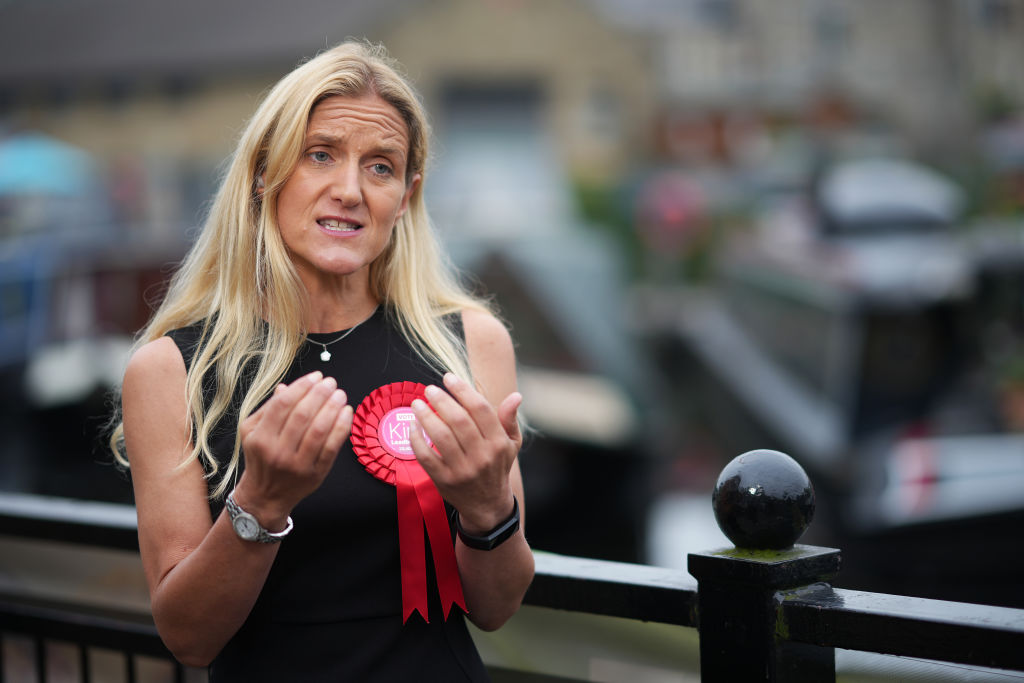There’s a beguiling simplicity to the idea behind Kim Leadbeater’s Terminally Ill Adults (End of Life) Bill, published yesterday. If someone is terminally ill and likely to die within six months and wants to accelerate the process, surely it’s only kind that the state should give two doctors the ability to help them do it rather than force them to endure months of anguish and possibly severe pain. Put in safeguards against undue pressure, make sure proper legal procedures are followed by requiring the imprimatur of a High Court judge, and who can rationally complain?
Well, I can. Any MP thinking of voting in favour at the second reading in two weeks’ time needs to look very carefully both at their own conscience and at the likely consequences to others of allowing this bill to go forward. Any state incursion into the Judaeo-Christian rule against killing for good cause needs looking at very carefully. It’s all very well talking of the terminally ill who can take their own decisions, but what about the severely disabled infant or adult who can’t? If we officially condone the deliberate killing of the former, why not the latter? Each, after all, is condemned to a pretty hellish life. And do we really want officially to rope doctors into the business of accelerating death rather than promoting health?
And the safeguards?
The practicalities are even worse. The whole process under the bill is, it seems, a kind of danse macabre moving inexorably to the black door at the back of the club. Ask your doctor to start the process; if they won’t, they cannot simply wash their hands of the matter, as many doctors of principle would wish to, but must (Clause 1(5)) refer you to someone who will. A second opinion must be obtained: but if they disagree you can shop around for someone more compliant. A High Court judge must then approve; but although they can hear from the people involved their function is essentially just to make sure the procedure has been correctly followed and rubber-stamp the operation if they have. (Doubts have been expressed by Sir James Munby, a senior Family Division judge, about whether this exercise in rubber-stamping for respectability is a proper use of judicial time or resources, but let that pass.)
Once that has happened, the whole gloomy process goes ahead in a gloomily clinical way. The doctor can’t actually kill the patient but he (or his minion – he can be accompanied) can hold the cup to the patient’s lips while the latter drinks the poison. The family may find out about their loved one’s death after the process.
And the safeguards? Although we are assured by Leadbeater that they are the strictest in the world, there is room for doubt about their effectiveness. Although you have to be registered with a UK practice to use the process, you can ask any doctor to start it. It’s not hard to see a new, baneful (if informal) medical specialisation arising here.
Undue pressure? A vague offence in Clause 26 of inducing someone to assisted suicide by ‘dishonesty, coercion or pressure’, whatever that means, does not promote confidence. What if a helpful doctor actively suggests an easy painless way out and agrees with the patient that bed-blockers who are going to die anyway cost millions and congest the NHS – an NHS that already often fails to provide the palliative care that patients are entitled to and thus at times makes life not worth living? Quite all right, if the doctor thinks this professionally acceptable, as a number will: Clause 4(2).
If, as an MP, you are genuinely happy to vote for a law that allows all this, with all the worrying risks it entails, feel free to vote for it. But also bear something else in mind. A bill like this, with almost unimaginably far-reaching moral and social consequences, should have been long in gestation and involved substantial public consultation. This has not. The bill has been published a mere couple of weeks before being debated, which hardly gives time for much public discussion. We are assured that wide consultation on it has taken place: but this has been undertaken, apparently with no publicity at all, by the promoter Ms Leadbeater herself, who is we know strongly in favour of assisted dying. Her assurances are no doubt soothing: but they are also one-sided. As to debate, rumour has it that a mere half-day will be allowed. It may not have been the intention, but the effect is that parliament is in danger of being bounced into making an enormously momentous decision with far too little time to weigh up what is involved.
This won’t do. Whatever you think of the principle of assisted dying, there is only one response to this bill that a principled MP can make, and that is to say that this is not a subject on which a decision of principle can be made on two weeks’ notice after a few hours’ debate. When matters relating to eternity are involved, the very least you can do is allow a decent time for thought and a proper opportunity to debate the matter at length.
Watch the debate on SpectatorTV:







Comments